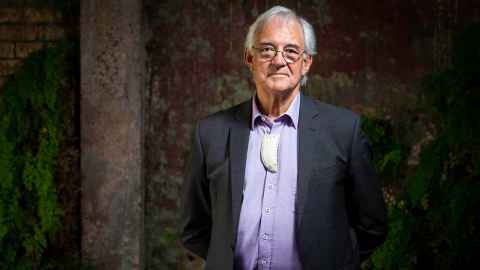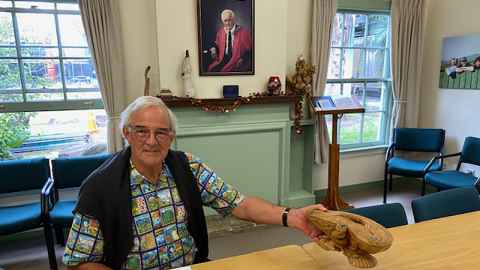'We have to inquire further' – David Williams
19 April 2023
Esteemed Indigenous law and treaty rights expert Professor Emeritus David V Williams FRSNZ was honoured with an appointment to the Waitangi Tribunal this month.

To what extent do Aotearoa's constitutional and electoral arrangements fit in with the guarantees found in Te Tiriti o Waitangi?
If Māori are not well served by the current situation what kind of changes are needed?
Rather than trying to fit the Treaty into the existing constitutional framework, what would a constitution look like if Te Tiriti was its basic foundation?
These are important questions for the future of Aotearoa New Zealand, and they’re among the questions Professor Emeritus David Williams will be exploring as part of a new Waitangi Tribunal inquiry, which begins this month.
Williams has spent more than 40 years researching and teaching Te Tiriti o Waitangi issues, colonial legal history, constitutional law, and tikanga in state law, and his career contributions were recognised this April with his appointment to the Tribunal's kaupapa inquiry 'Wai 3300' which will investigate claims concerning the constitution, self-government and the electoral system.
Waitangi Tribunal Chairperson Chief Judge Wilson Isaac highlighted Williams' long-standing involvement in Tiriti issues and said his legal and historical expertise and experiences will add considerable value to the panel.
The Waitangi Tribunal's kaupapa inquiry programme provides a pathway for hearing nationally significant claims that affect Māori. Professor Williams joins Deputy Chief Judge Caren Fox as presiding officer, Commissioner Kevin Prime, Derek Fox, Prue Kapua and Dr Grant Phillipson as inquiry panel members.

"The appointment is more or less a perfect fit for my passions and interests" says Williams. "It's what I've been talking about, writing about, and teaching about for most of my 46 years as an academic at the University of Auckland."
A crucial aspect of the inquiry, says Williams, will be to identify opportunities to enable Māori iwi and hapū to revitalise tikanga Māori and give practical effect to tino rangatiratanga.
When the New Zealand Constitution Act was enacted in 1852, it was set up for the colonising settlers to have power and authority. “And it's been like that ever since,” says Williams, “permitting a tyranny of the majority.”
“Māori are an Indigenous minority, so how can their voice be heard in a meaningful way when the elected majority can always get its way?”
The Tribunal will inquire as to whether there are ways in which hearing the Māori voice can happen before governments make their decisions and before parliament passes new laws.
The panel members will hear from the Crown and claimants and will consider ways to structure our decision-making as a nation that don’t leave Māori forever having to play catch up to have their voices heard after the government has already decided on something.
These sorts of constitutional challenges have been raised by many Māori constantly, decade after decade after decade, and they're not going to go away. As Williams puts it: “We have to inquire further."
Media contact
Sophie Boladeras | Media adviser
M: 022 4600 388
E: sophie.boladeras@auckland.ac.nz